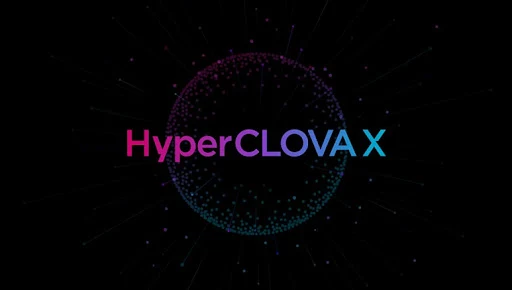AI 저작권 협상에 대하여(OpenAI, 악셀 스프링어, 네이버, 신문협회)
◉ 신문협회의 '집단 딜' 제안
- 신문협회는 거대언어모델 개발사(네이버)와 언론사 간의 집단 딜을 제안. 소송을 통해 얻을 수 있는 경제적 이익이 기대만큼 크지 않은 상황에서 가장 현명한 해법은 소송 전 혹은 소송 과정에서 최상의 타협안을 도출하는 것.
◉ 소송으로 얻을 수 있는 이익이 적다 본 근거
① 증명하기 어려운 저작권 위반
- 법정에서 언론사가 특정 생성 AI가 저작권을 침해했다는 걸 증명하기란 사실상 거의 불가능. 물론 학습 데이터에 대한 저작권 위반을 주된 쟁점으로 내걸 수는 있지만 언론사에 그리 유리한 환경은 아님. 자사 기사의 저작권성을 인정받은 뒤 공정 이용의 허들도 넘어야 하기 때문. 저작권 위반의 입증책임은 저작권자에게 있고, 이를 입증하지 못하면 승소하기 쉽지 않음.
② 측정하기 어려운 언론사 측의 현재, 미래 시장에 대한 경제적 침해 규모
- 미국에선 검색 유입 트래픽 감소가 본격화하고 있다는 실증 기반 예측이 나오고 있지만, 현재 그리고 미래의 피해 규모를 경제적 가치로 환산하고 입증하는게 쉽지 않음.
◉ 마침내 등장한 개별 협상 타결 선례 : 악셀 슈프링어 & 오픈AI
◉ 네이버와의 협상에 미치는 영향
- 네이버는 학습 데이터의 저작권 논란 및 기타 규제 압박에서 벗어나기 위해 오픈AI와 악셀 슈프링어의 합의 사례를 면밀하게 분석할 것이고, 국내 언론사를 대상으로 유사한 전략을 취할 가능성이 높음.
- 앞으로 모든 신문사 혹은 방송사가 집단으로 협상을 진행하는 건 어렵다고 봐야 됨. 악셀 슈프링어와 오픈AI의 사례는 이를 방증해 준 사례. 네이버는 결국 많은 뉴스 미디어 브랜드를 보유하고 있는 국내 대형 미디어 그룹을 대상으로 우선적으로 협상을 진행하게 될 가능성이 높음. 이 과정에서 지역, 중소규모 언론사들은 입지가 줄어들 것으로 언론사 간의 양극화 심화될 것. 개별 협상력이 약한 중소규모 언론사들이 집단 단위로 움직여야 그나마 가능성이 있을 것임.
- 중요한 것은 앞으로 펼쳐질 검색 환경과 사용 패턴의 변화, 그것이 수익에 미치는 영향을 명확하게 분석하고 예측해 볼 수 있어야 함. 원천성이 전제된 고품질 저널리즘의 결과물이 확보되지 않은 언론사들은 협상의 대상에 끼어들기 어려울 것임.
◉ a 'collective deal' proposal from the newspaper association
- The association proposes a collective deal between a giant language model developer (Naver) and a media company. At a time when the economic benefits of litigation are not as great as expected, the wisest solution is to come up with the best compromise before or during litigation.
◉ grounds for the low benefits of litigation
① a hard-to-prove copyright violation
- In court, it is virtually impossible for a media company to prove that a particular generative AI has infringed copyright. Of course, copyright violations on learning data can be the main issue, but it is not a very favorable environment for media companies. This is because after the copyright of its articles is recognized, it has to overcome the hurdle of fair use. The responsibility for proving the copyright violation lies with the copyright holder, and if it is not proved, it is not easy to win.
② The scale of economic infringement on the current and future markets of media companies that are difficult to measure
- In the United States, there are empirical-based predictions that the decline in search inflow traffic is in full swing, but it is not easy to convert and prove the current and future damage into economic value.
◉ Individual Negotiation Conclusion Precedents Finally Appeared: Axel Springer & OpenAI
- Axel Springer, Europe's largest media group, and OpenAI have signed a content partnership. Rumors that OpenAI is in contact with individual media outlets have been rampant.
- So why was Axel Springer the first time?
① Axel Springer is the largest media group in Europe and has a large number of high-end media such as Politico, Insider, D-Belt, and Rolling Stones. It is much more efficient to secure a large amount of news at once by using media groups as bargaining targets than dealing with several associations from the perspective of OpenAI.
② It was one of the active media groups in introducing generative AI. CEO Axel Springer Mathias Duffner has regarded generative AI as an opportunity for the media industry more than anyone else. Axel Springer has a fast understanding of technology flow and has a large number of technical manpower to lead negotiations
③ Producing high-quality paid journalism preferred by AI companies. OpenAI wants to obtain high-quality news data as much as possible for learning its model, and Axel Springer can meet such demand.
◉ Impact on Negotiations with Naver
- Naver will closely analyze the case of the agreement between OpenAI and Axel Springer to escape copyright controversy and other regulatory pressures on learning data, and is likely to take a similar strategy for domestic media companies.
- In the future, it should be seen that it is difficult for all newspapers or broadcasters to conduct collective negotiations. The cases of Axel Springer and OpenAI are examples of this. Naver is highly likely to eventually negotiate with large domestic media groups that have many news media brands. In this process, regional and small and medium-sized media companies will lose their positions, intensifying polarization between media companies. There will be a possibility only when small and medium-sized media companies with weak individual bargaining power move as a group.
- It is important to be able to clearly analyze and predict future changes in the search environment and usage patterns, and their impact on profits. It will be difficult for media companies that do not have the results of high-quality journalism based on the premise of source to intervene in the negotiation.





.jpeg)
댓글
댓글 쓰기